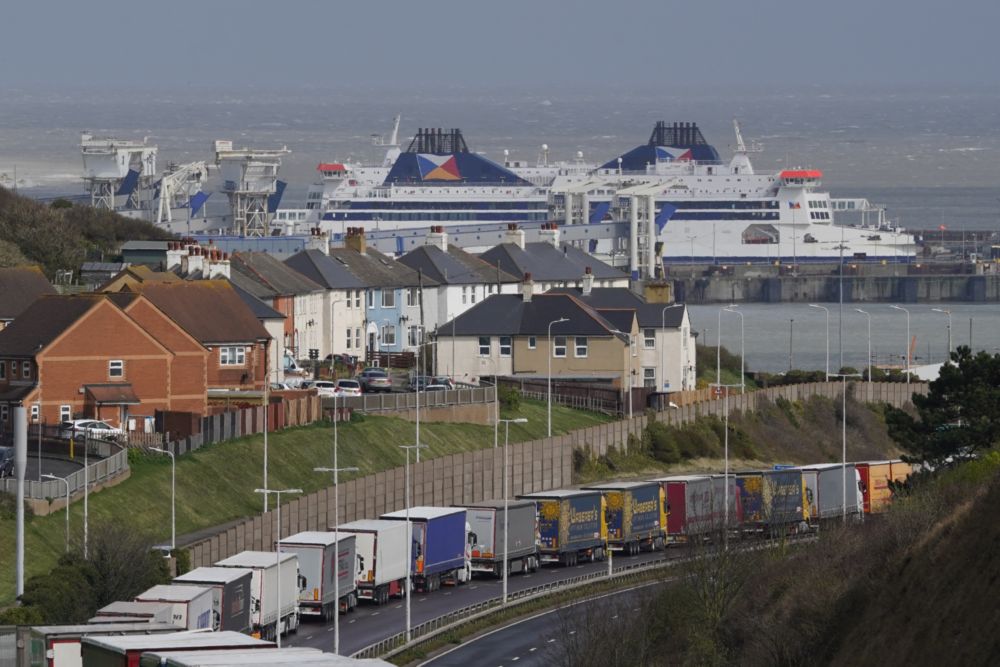
Two P&O ferries remain in the Port of Dover, Kent, as freight lorries queue to check- in at the Port of Dover, Kent, as some ferry services remain suspended at the Port of Dover following the sacking of 800 seafarers by the ferry giant without notice on March 17, amid plans to bring in cheaper agency staff. — PA via Reuters
Follow us on Instagram and subscribe to our Telegram channel for the latest updates.
LONDON, April 1 — P&O Ferries is facing a criminal and civil probe into its abrupt sacking of nearly 800 workers, the UK government’s Insolvency Service said today.
A total of 786 employees, many of them long serving, were told in a videocall on March 17 that they would lose their jobs with immediate effect.
The move triggered outrage from unions, not least because the company then immediately hired foreign agency workers to replace them on less than the minimum wage.
Prime Minister Boris Johnson criticised P&O Ferries and said the government was looking to take the company to court for a flagrant breach of labour laws.
The company’s under-fire chief executive admitted to MPs last week that bosses deliberately flouted their legal obligations to consult on the job losses.
In a letter to Business Secretary Kwasi Kwarteng, the head of the Insolvency Service said it had now launched “both formal criminal and civil investigations”.
“Whilst these investigations are being progressed, it would not be appropriate for me to make further comment at this time,” said Dean Beale.
The Insolvency Service deals with UK companies that are in financial distress. It has powers to prosecute companies and their directors if it finds that laws have been broken.
P&O Ferries has justified its actions by saying it had no choice as it was faced with annual losses of £100 million (US$130 million, 120 million euros) after the pandemic devastated international travel.
Without radically cutting its costs, it risked having to make its remaining 2,200 employees redundant, the firm claimed.
With protests at UK ports, unions want the government to tighten legal protections for maritime workers, to prevent a repeat by another company.
Transport Secretary Grant Shapps is pushing his European counterparts to agree a minimum wage on cross-Channel and other routes, plus a ban on companies that flout the rules. — AFP